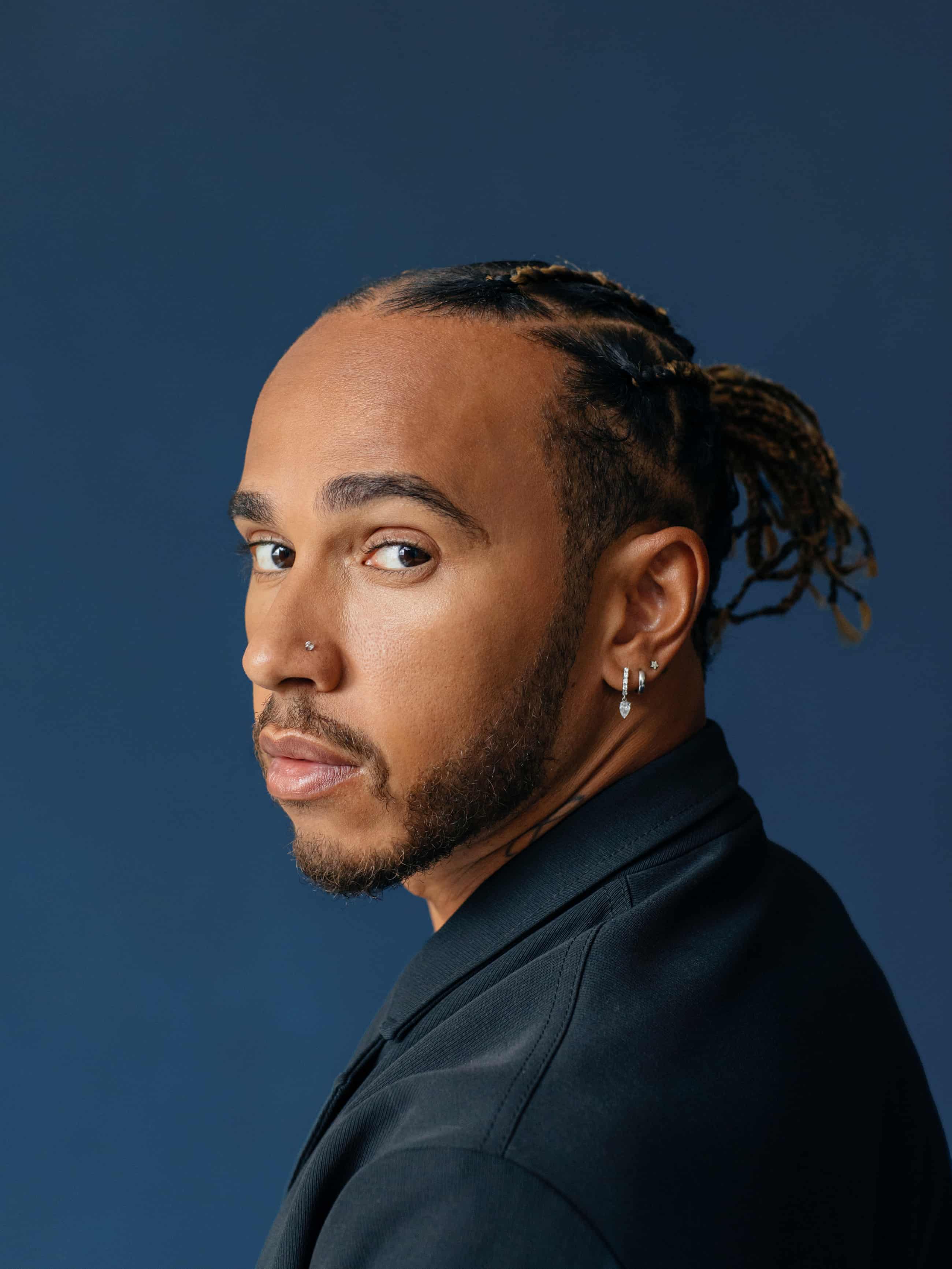Lewis Hamilton: ‘Everything I’d suppressed came up – I had to speak out’Posted in Articles, Biography, Media Archive, Social Justice, United Kingdom on 2021-07-15 15:50Z by Steven |
Lewis Hamilton: ‘Everything I’d suppressed came up – I had to speak out’
The Guardian
2021-07-10
Gary Younge, Professor of Sociology
University of Manchester, Manchester, United Kingdom
 Lewis Hamilton: ‘I don’t just want to be remembered as a driver.’ Styling: Law Roach. Photograph: Ike Edeani/The Guardian |
He’s the most successful driver Formula One has ever seen, and its only Black star. Now Lewis Hamilton has a new mission: to change the sport that made him.
As Lewis Hamilton rose through the ranks of competitive go-karting, his father, Anthony, told him: “Always do your talking on the track.” Lewis had a lot to talk about. Bullying and racial taunts were a consistent feature of his childhood in Stevenage, Hertfordshire, a new town 30 miles north of London; his dad taught him the best response was to excel at his sport.
The trouble was he didn’t have many people to talk to about what he was going through. Lewis is mixed-race, born to a white mother, Carmen Larbalestier, who raised him until he was 12, when he went to live with his Grenadian-British father, from whom she had separated. “My mum was wonderful,” he tells me. “She was so loving. But she didn’t fully understand the impact of the things I was experiencing at school. The bullying and being picked on. And my dad was quite tough, so I didn’t tell him too much about those experiences. As a kid I remember just staying quiet about it because I didn’t feel anyone really understood. I just kept it to myself.” Sport offered him an outlet. “I did boxing because I needed to channel the pain,” he says. “I did karate because I was being beaten up and I wanted to be able to defend myself.”
I understand where he’s coming from; I too grew up in Stevenage. Hamilton’s mother and I went to the same school – though not at the same time. As close to London as it was, it might as well have been in a different universe. In London the Black experience appeared authentic; in Stevenage it felt synthetic. Race in London was something you read about in the papers; race in Stevenage was something you didn’t even acknowledge. I was 22 before I found my first Black male friend…
Read the entire article here.